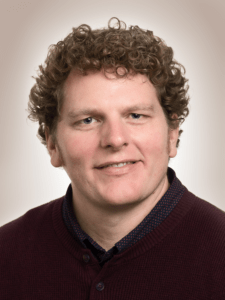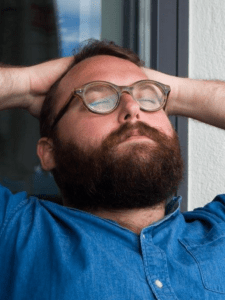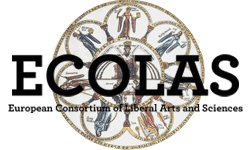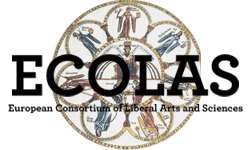Christopher May & Ryan Wittingslow
 Dr. Christopher May is currently an Assistant Professor of Social Science at University College Groningen. He has worked as an assistant/associate professor in liberal arts environments in both America and the Netherlands for over 10 years. He has research interests in the scholarship of teaching and the cognitive-emotional effects of meditation practice. His interest in assessment dovetails with his expertise in statistical analysis in the social sciences. Finally, Dr. May has a long history of interdisciplinary collaboration with historians, engineers, and psychologists. He is keenly interested in the synthetic promise of interdisciplinarity.
Dr. Christopher May is currently an Assistant Professor of Social Science at University College Groningen. He has worked as an assistant/associate professor in liberal arts environments in both America and the Netherlands for over 10 years. He has research interests in the scholarship of teaching and the cognitive-emotional effects of meditation practice. His interest in assessment dovetails with his expertise in statistical analysis in the social sciences. Finally, Dr. May has a long history of interdisciplinary collaboration with historians, engineers, and psychologists. He is keenly interested in the synthetic promise of interdisciplinarity.

Dr. Ryan Wittingslow is currently Assistant Professor in Humanities at the University College Groningen. He has worked at the University College for the past two years, before which he experienced moderate success as a journalist. His research interests sit at the chaotic intersection of art history, history of technology, and philosophy. As an educator, his primary interest is in fostering academic independence, producing students resistant to the disciplinary siloing of academia. He also has devastating opinions about art.
Project Supported by J. J. Kidd Fellowship
We have defined a new marker of education- aisthesis- which is a developed sensibility for the likely validity or value of claims, appeals, products, or performances that students might encounter in the world. We believe that aisthesis is more resistant to decay than the specific knowledge and skills students learn as part of their formal education. Indeed, aisthesis motivates the lifelong learner to figure just why something does not sound right or feels “off”. In our project, we seek to better understand how aisthesis is (or can be) cultivated in the classroom and how we might be able to assess levels of aisthesis. Toward this end, we will use a mixed-methods approach to gather and analyze multiple types of data (quantitative/qualitative) from students and their instructors.
Liberal Arts & Sciences And Us
Chris: “Individual maturation entails the ability and propensity to adopt multiple perspectives. A Liberal Arts and Sciences education is designed to facilitate precisely these things. And it can just be a lot of fun to renegotiate our relationships with what we thought we knew!”
Ryan: “In Ancient Rome, the artes liberales used to describe those subjects considered too dangerous to teach slaves and non-citizen subjects: grammar, logic, and rhetoric. Although the curriculum has changed, I like to think that there is still that element of risk in LAS education. We hope that LAS students will become citizens armed with dangerous analytical gifts and the courage to speak truth to power.”




